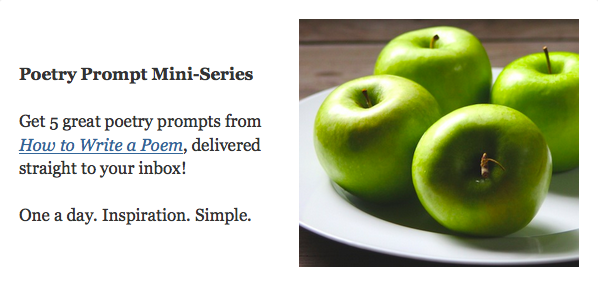Editors Note: Check out these 5 reasons the Indiana Review rejects your poems. Then go find a better ending. It might help you get your poems published elsewhere too.
There’s a bug going around the Indiana Review office. We’re drinking plenty of fluids, popping lots of pills, but everyone’s on edge. Just yesterday, I shook hands with Fiction Editor Joe Hiland, and I think I caught it: I caught the grouchy bug. So, I think it’s time for a poetry take on Joe’s post about what we often reject:
1. Boring first lines. I get that the first line often needs to set up the scene or narrative or conceit of the poem, and so there’s a desire to use it as a kind of exposition, but if I, while getting paid to do this, don’t want to read past your first line, potential readers probably won’t, either. Don’t just tell me you met Janine when you were twelve, or that the moon was overhead, or that May became June. Hook me, flatten me, f— me out of my senses with your first line. It should be one of the best lines of the poem.
2. Over-associating. I’m not a minimalist by any means, but I do believe in earning your fireworks. Your winter breath is not a constellation of fireflies axing their way through the winter like little lumberjacks. There’s not a hot air balloon filled with jackrabbits in your chest every time she looks at you like a prison guard bleeding sugar. I don’t care that it’s Tuesday. A poem ought to be, I think, more than just a collection of assorted images. What is your poem doing? What does it add up to? How is it governed?
3. Abstractions, clichés, stale language. This one should be obvious, but, apparently it isn’t. Fire licks, smoke curls, sunlight dances and dapples. Clouds of grief. I receive so many poems that are generally interesting and well-crafted and then drop a big fat cliché in the middle. Regardless of how honest, genuine, or deeply felt these phrases are, I’ve read them many times already. Be fresh.
4. Refusal to transcend. Whether a poem originates in a painting or myth or fairy tale or memory of the poet’s first boyfriend or phrase in another language, it ought to transcend its originating material. How is the poem, the poet, the speaker, or the reader changed by the end of the poem? Where have we gone? I want to be MOVED, in any and all of the wild and various ways a poem can do that to a person.
5. Weak endings. I think the phrase “but the ending…” is probably the most-said phrase in the IR office. Across all the genres, we get so many pieces that are killed by their own endings: pieces that sputter out or say too much or don’t say quite enough, pieces that end on a confusing phrase or an abstraction after so much crisp imagery, endings that go in a whole new direction and leave that direction undeveloped, endings that repeat what the whole piece has already said, endings that aren’t emotionally resonant and endings that are manipulative. Anything less than a great ending is probably going to kill the poem, for me. Endings are hard, man. Like drawing hands.
I don’t mean to suggest that these are all-important rules for making a good poem, that there is never a reason to do one or more of these things. But a great number of the poems I reject from the slush pile, or that don’t make it out of our editorial meetings, are turned down largely for one of these five reasons. Hopefully, this gives you a better idea, via negativa, of what kinds of poetry we like.
Photo by Claire Burge, Creative Commons license via Flickr. Modified reprint. Original post by Michael Mlekoday, poetry editor at Indiana Review. This article first appeared at indianareview.org. Reprinted with permission.
____________________________
Click to get FREE 5-Prompt Mini-Series
- 5 Reasons Your Poems Get Rejected - October 17, 2012


Donna says
I really appreciate the tips!!! Thank you for sharing. Might wallpaper my workspace with them… 😉
L. L. Barkat says
Loved this…
“Your winter breath is not a constellation of fireflies axing their way through the winter like little lumberjacks”
I would add that I look for a sense of presence in a poem. Maybe that is related to the question of what-is-your-poem-doing.
Because “doing” suggests the presence of a viewer or a participant, or some *one* or some *ones.*
Without presence, a poem feels like an exercise in technique, and I don’t publish those kinds of poems, much as they might impress at some other level.
Davey says
In complete agreement, except for number one. The refusal to transcend is of particular importance I believe – many seem to ignore that pivotal moment (or moments) of a poem, that opens it up to something larger and more luminous.
L. L. Barkat says
Do you mean you think it’s good to open with a boring line, so as not to transcend that early in the poem? (So curious 🙂 )